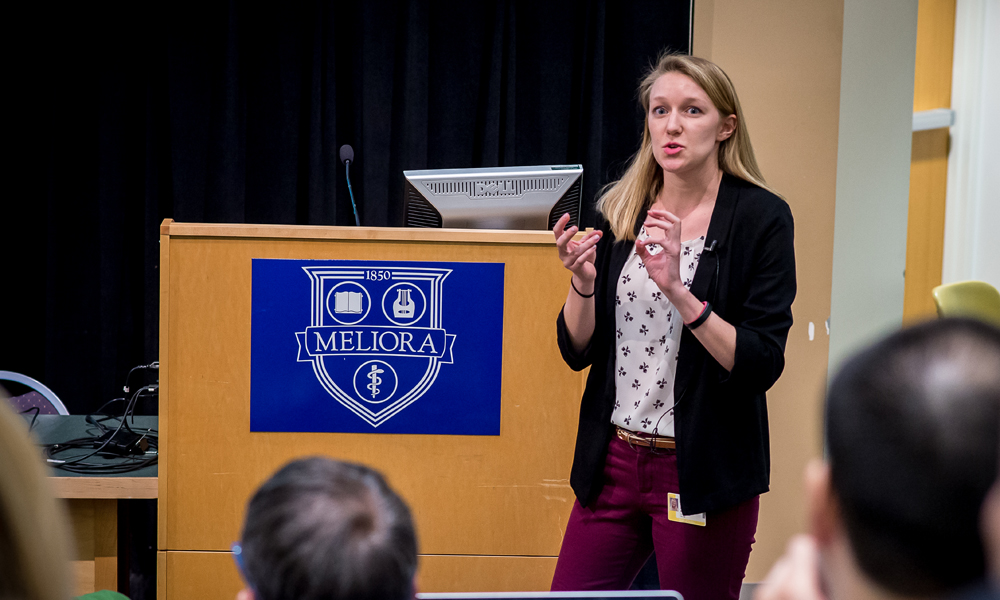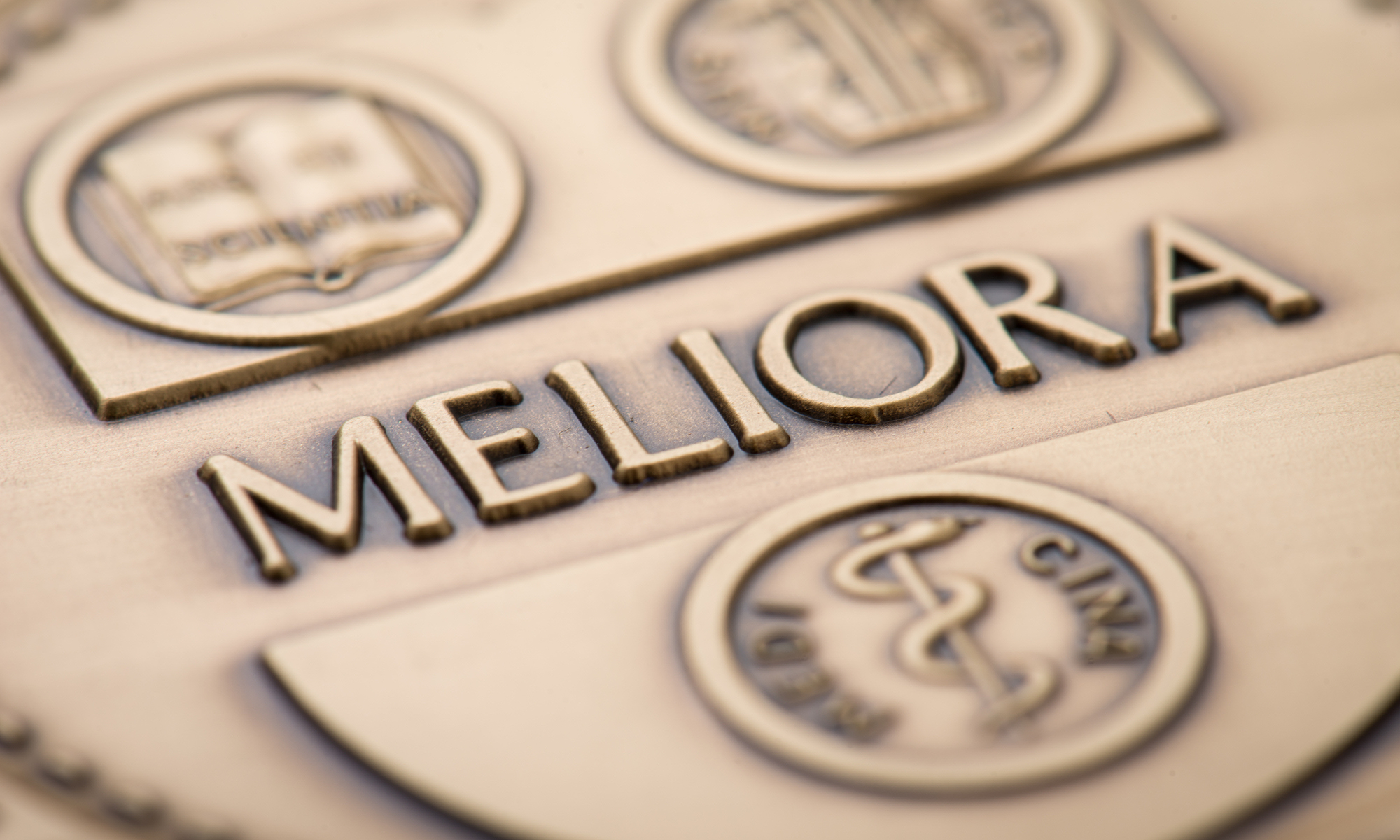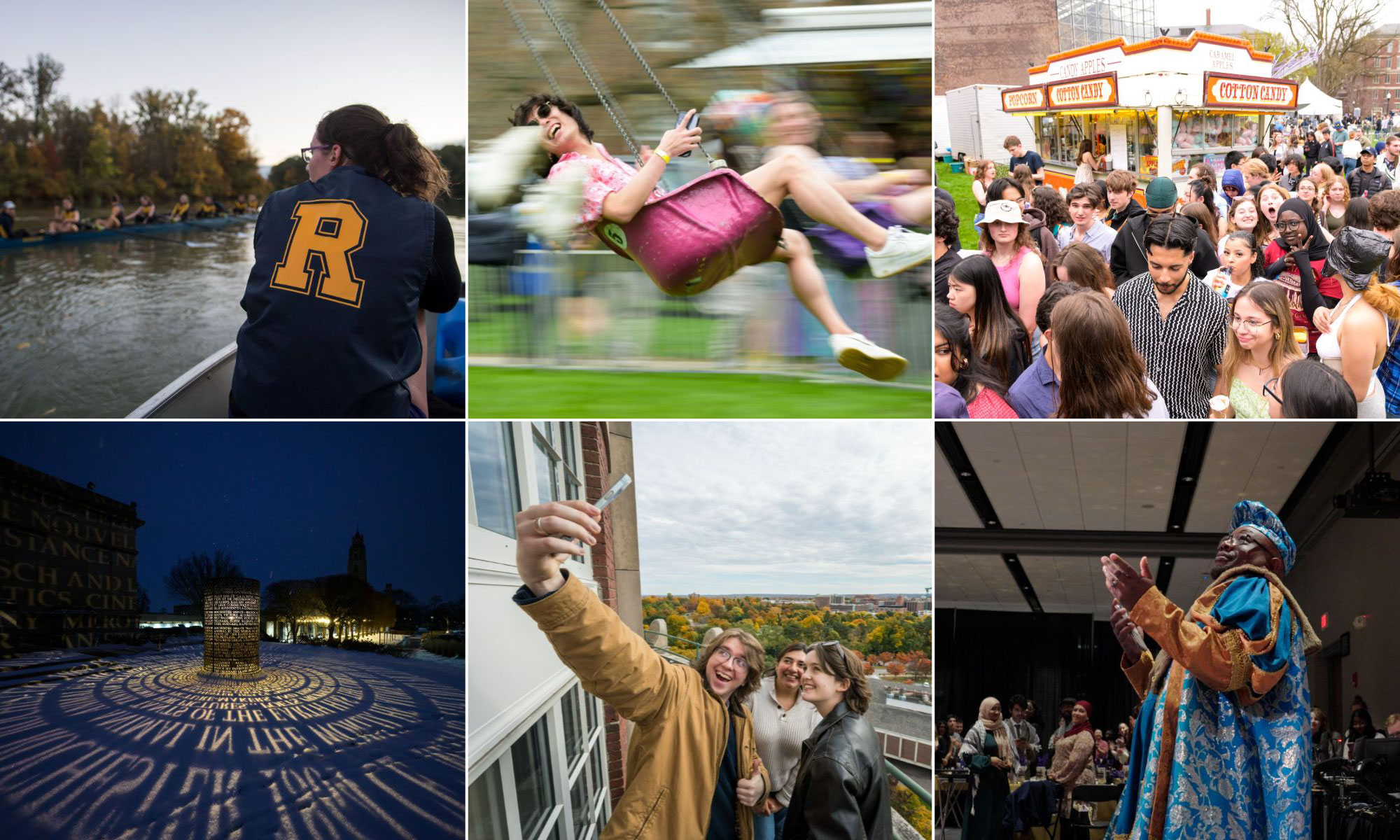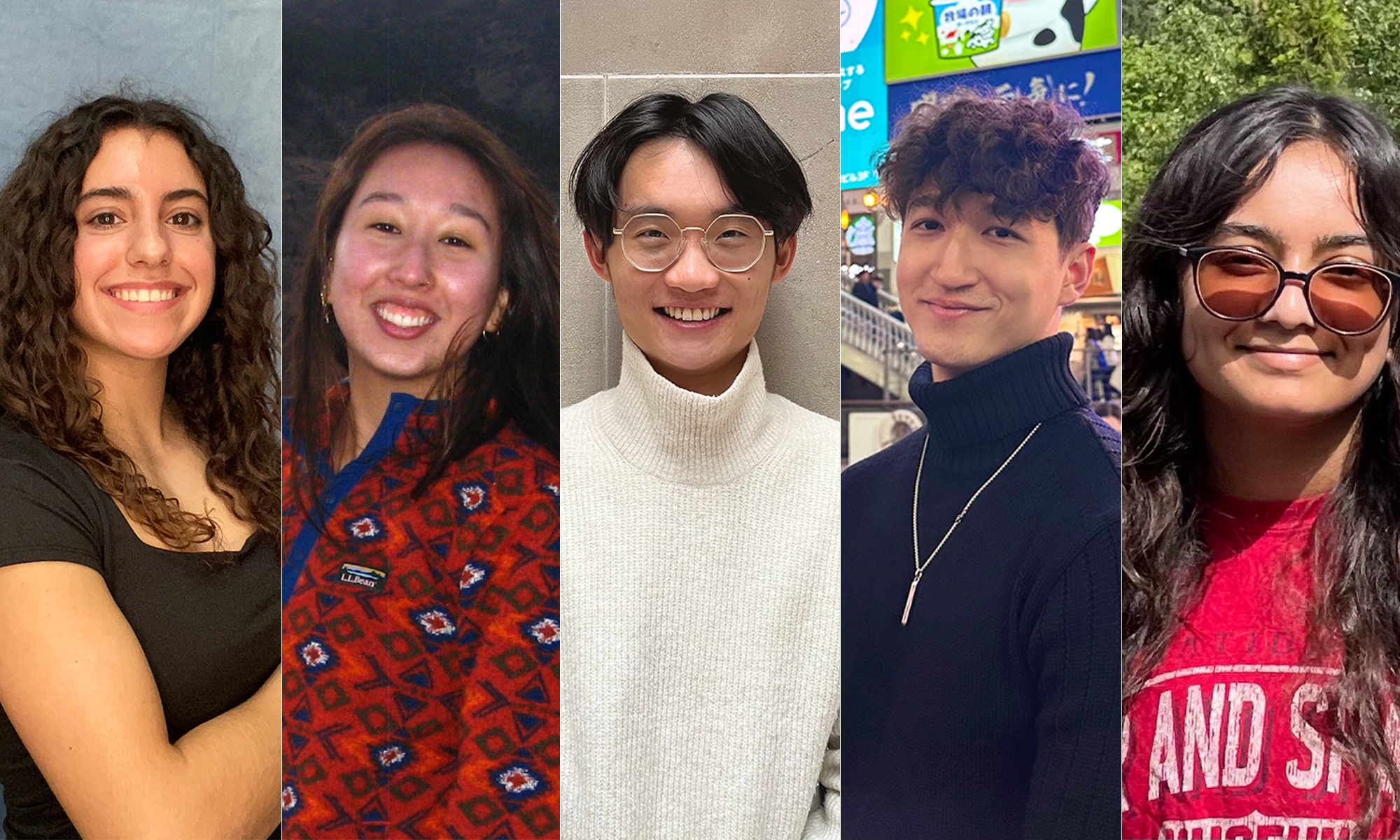“When you can’t breathe, nothing else matters,” Jennifer Judge said at the end her presentation, which won over both the panel and audience at the University’s first “Three Minute Thesis” competition on May 4, 2016.
Judge, a toxicology PhD student, took both the $1,000 first place prize awarded by a panel of five judges and the $500 People’s Choice award from ballots marked by a large audience in the Class of ’62 Auditorium. Her presentation, “How Lung Scarring Impairs Gas Exchange,” described her efforts to better understand the role of myofibroblasts in producing the scar tissue associated with pulmonary fibrosis.
“Our ultimate goal is to develop a therapy where we can target these myofibroblasts and inhibit scar formation,” she said. “We desperately need new therapies.”
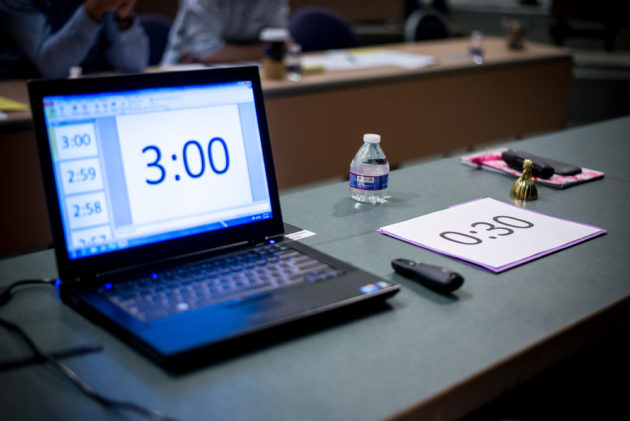
Judge was one of eight finalists who were each allowed a single power point slide and three minutes to describe their projects. The contest was developed by the University of Queensland in 2008, and is now conducted at universities worldwide to help students’ hone their ability to explain their research to nonspecialists.
“I think that really shows some presentation skills, that [Judge] was able to win both from the standpoint of very defined judges’ criteria and from general presentation skills,” said Laura Shum, a PhD student in translational biomedical science, who organized the contest with assistance from the School of Medicine and Dentistry’s Center for Professional Development, the Arts, Sciences, and Engineering Graduate Studies Office, the Graduate Student Society, and the Graduate Student Association. “I thought everybody out there did a really fantastic job.”
The other finalists were:
- Anas Zainul Abidin, biomedical engineering, “A Novel Computer-Aided Diagnosis Framework for Detecting Neurodegeneration in the Human Brain”
- Martina Anto-Ocrah, epidemiology, “Sexual Dysfunction after Mild Traumatic Brain Injury in Women”
- Michael-John Beltejar, genetics, “Contributions of Material-Level Properties to Bone Strength”
- Zachary Murphy, pathology, “The Embryo: Unlocking Secrets to Signaling During the Making of Red Blood Cells”
- Sara Nowacki, biomedical engineering, “Improving Cartilage Repair”
- Evan Ranken, physics and astronomy, “Dancing with Particles: Why Is Nature Still Doing the Disco?”
- Jannai Shields, philosophy, “I’ll Level With You: Ontological Levels and Their Generation Conditions”

